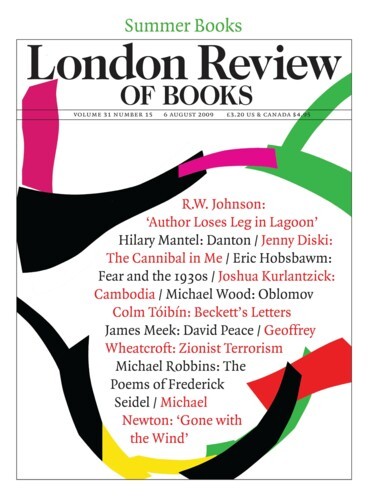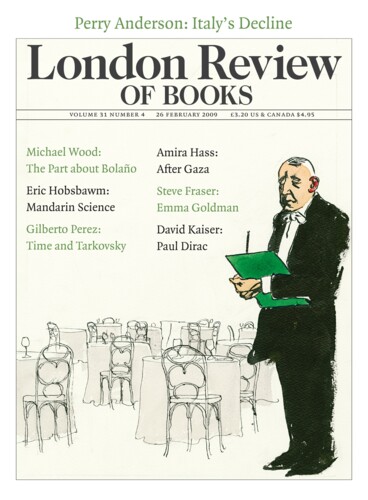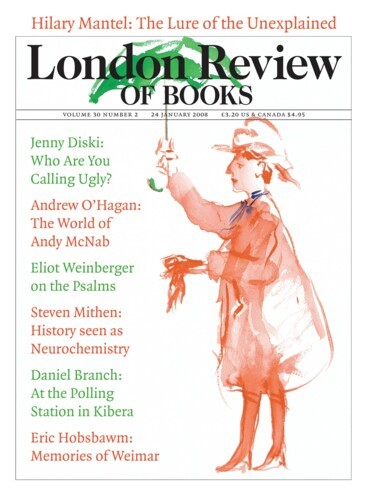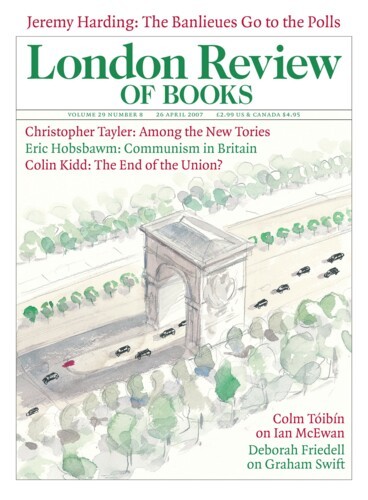I spent the most formative time of my life, the years 1931-33, as a Gymnasiast and would-be Communist militant, in the dying Weimar Republic. Last autumn I was asked to recall that time in an online German interview under the title ‘Ich bin ein Reiseführer in die Geschichte’ (‘I am a travel guide to history’). Some weeks later, at the annual dinner of the survivors of the school I went to when I came to Britain, the no longer extant St Marylebone Grammar School, I tried to explain the reactions of a 15-year-old suddenly translated to this country in 1933. ‘Imagine yourselves,’ I told my fellow Old Philologians, ‘as a newspaper correspondent based in Manhattan and transferred by your editor to Omaha, Nebraska. That’s how I felt when I came to England after almost two years in the unbelievably exciting, sophisticated, intellectually and politically explosive Berlin of the Weimar Republic. The place was a terrible letdown.’
Large enough to block the fashioning of a lasting non-right Weimar regime, the left did not wish to contribute anything to its practical politics except disgust. For understandable reasons creative artists, radicalised by the horrors of war and the hope and fury left behind by lost revolution, were attracted to it; indeed, there are Weimar figures whose lasting achievement rests primarily on the force of their distaste for the republic. Even genuine high talents like George Grosz and Kurt Weill ceased to be very interesting when, after 1933, they arrived in the US and felt at ease.




